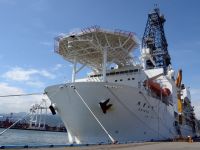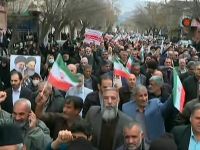The news from Algeria is both good and bad. One year after President Abdelaziz Bouteflika first launched a daring initiative to end years of civil war, a new wave of violence has sparked fears that diehard extremists have stepped up their struggle against the government. But while the political and security situation appears precarious, recently released macroeconomic indicators represent grounds for optimism.
Algeria’s central bank recently announced that, at the end of May, the country’s foreign reserves $6.5 billion, compared with $6.1 billion in April and $4.4 billion at the end of 1999. This increase in reserves is due mainly to higher crude petroleum prices, since the oil sector accounts for more than 96 percent of Algeria’s foreign currency earnings and provides over 50 percent of total government revenues.
Higher oil prices have also caused Algeria’s trade surplus to rise 10-fold to $5.06 billion through the first half of 2000, compared to the corresponding period last year. Banking experts expect export surplus for this year to reach $15.5 billion, as opposed to $11.9 billion in 1999.
But all this takes place against a backdrop of sometimes harrowing carnage. More than 1,200 civilians have been shot dead or hacked to death since Bouteflika’s six-month amnesty offer to opposition forces expired in January, and Algerian security forces have executed over 200 militants of the hard-line GIA and GSPC groups. Both steadfastly have dismissed the president’s peace proposals.
The most recent episode of brutality in Algeria occurred over the weekend, when four people were killed. The dead, slaughtered in a number of incidents on Saturday, included two children who were attacked near the town of Tipaza, 70 km west of Algiers. Earlier this month, nine people were murdered in a pair of incidents south of Algiers. Armed Islamic extremists have been blamed for all the bloodshed.
In July, rebels massacred nearly 300 people, despite Bouteflika’s ongoing program of national reconciliation.
Still, the International Monetary Fund (IMF) recently praised Algeria’s initiative to put aside extra revenues from inflated oil prices. It has also encouraged plans to reform this country’s banking system. Nevertheless, the IMF has also warned Algeria that it must continue to remove trade barriers and accelerate private sector reform. Regarding the latter suggestion, help is available from the World Bank, which lately offered a $100 million loan to restructure the country’s industrial and telecommunications sectors.
When Bouteflika launched his reconciliation program last year, international interest in the Algerian market immediately increased. Scores of multinationals that declared their intent to enter the Algerian market exemplified the enhanced appeal.
Currently, however, the better fortunes of the Algerian economy are largely founded on the higher oil prices. With the intensification of violence in recent months, foreign investors have been keeping their distance and are likely to continue doing so as the long as the country is considered unsafe.
The domestic situation is further complicated by rampant poverty, with more than 40 percent of the population living below the poverty line. The situation is particularly acute in rural areas, and it is there that the radical Islamic groups find some of their most fervent recruits.
Nevertheless, if multinationals are willing to overlook political concerns, investment opportunities abound. Before the end of the current year, the government will privatize the lucrative telecommunication and mining sectors, both of which will be 100 percent open to foreigners. – (Albawaba-MEBG)








